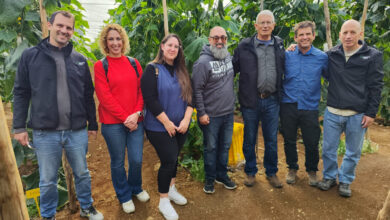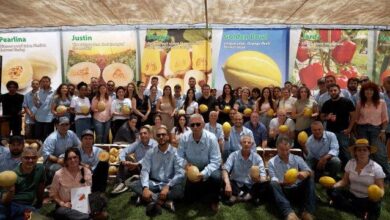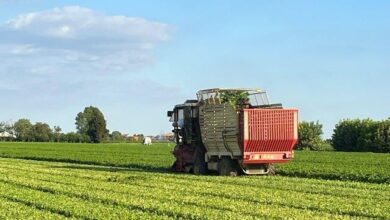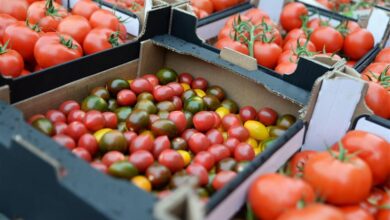Prospera® – the brand of downy mildew resistant basils
Highly innovative basil products
Interview with Dr. Yariv Ben-Naim
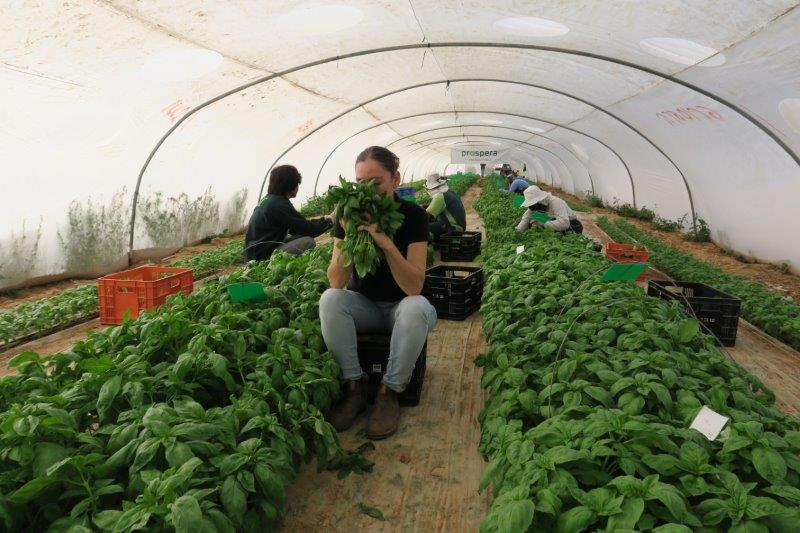

Sweet basil is one of the most widely used herbs in the kitchens world-wide. israel, as a major exporter of herbs to europe, is a large grower of basil. in 2012 israel’s basil sector was hit, for the first time, with a new leaf fungus called downy-mildew (peronospora). the damage was so heavy that it was defined as an epidemic. this disease had spread through europe and the u.s. several years earlier, and was found on basil plants in israeli greenhouses. the disease symptoms are expressed as deformation and yellowing of leaves, and appearance of dark spores on the lower side of the leaves. when symptoms advance, the leaves turn brown and fall off. this disease is spread quickly via airborne spores, which in turn might cause a total collapse of the entire plot, and even spread onto adjacent basil fields.
Downy-mildew is causing extensive damages to the herbs export industry, and farmers find it difficult to manage the crop by pesticides use, while meeting the stringent export pesticide standards. those challenges raised the urgent need to find a rapid, chemical-free solution for the problem.
Genesis-seeds is an israeli company, specialized in producing basil seeds on a global scale, has taken on the challenge and invested in a research to find a solution to downy-mildew. the research began in 2015 and was conducted by a team of phytopathology experts directed by prof. yigal cohen and dr. yariv ben-naim from bar-ilan university in israel. as dr. ben-naim says: “we entered into a long and complicated process which began with an attempt to locate genetic sources of resistance. to that end, we screened hundreds of wild species from seed banks around the world. at the end of that year, we had a source of resistance from africa, which we decided to hybridize with a sweet italian cultivar in order to attain a commercial product.”
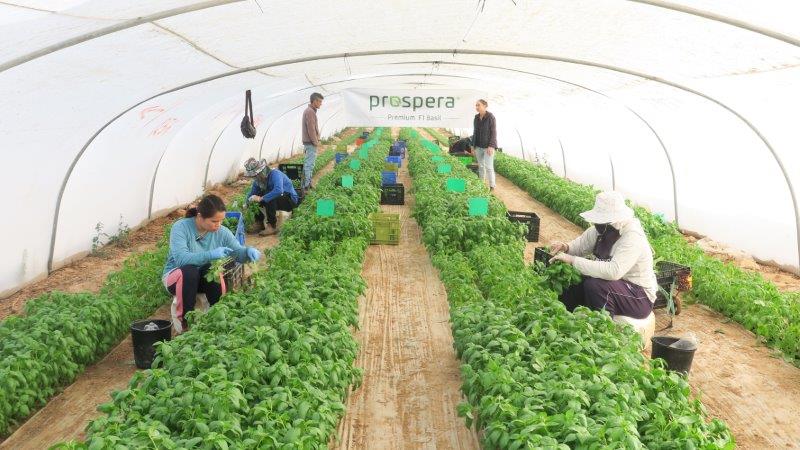
Despite the difficulties the research team had encountered, eventually a few hybrid plants that contained the gene responsible for resistance were discovered. those few plants initiated an intensive breeding project that led, for the first time, to a sweet basil cultivar that possesses a resistance gene for downy-mildew. dr. ben-naim continues: “two years later, together with genesis-seeds, we developed a product which was named prospera®. this variety met all the strict market requirements, with excellent flavor and aroma and overall appearance. since 2019 genesis-seeds has sold the prospera® variety in israel and abroad. this year, additional varieties have joined the prospera® product series, 2 varieties for the pot market (one with large leaves and one with a smaller leaf), and an additional ‘italian large-leaf’ type which is much preferred in the american market.
The company currently markets these four products under the prospera® brand name. however, the development team isn’t resting on its laurels, and is engaged in expanding the prospera collection with additional varieties such as red basil, thai, as well as a combination of new sources of resistance to downy-mildew. these products will enable a foothold in new global markets, with broader resistance coverage for various potential strains of downy-mildew worldwide.
Another characteristic familiar to growers is basil’s sensitivity to cold, both in the field as well as while refrigerated post-harvest. based on the successful cooperation between genesis-seeds and the researchers, the team is currently breeding varieties with higher cold tolerance. in this framework they are beginning to combine genes of cold tolerant wild basil species (e.g., a plant collected from the high grounds of mount kilimanjaro).
According to dr. ben-naim, “basil comes from africa and likes heat. the winter season is a growing obstacle worldwide for growers who don’t use heated facilities. we try to implement genes from wild species to provide broader tolerance to sweet basil, so that farmers will be able to extend their growing season into the winter, and to export during the period when basil prices are high in most markets.” in another project, the team is trying to create a cultivar with resistance to aphids, thereby contributing to both consumers’ and the environment health with limited pesticide spraying of crops. however, it’s important to understand that the development process takes years and never really ends, since new varieties have to be adapted to different growing zones, to new epidemics and sometimes to new market trends that change from time to time.
Dr. ben-naim concludes: “together with the breeding team of genesis seeds, today we are proud parents of highly innovative basil products. we’ve learned how to take a product with a long heritage such as the basil, and to conduct a non gmo process in order to adapt it to changing market demands, whatever they may be.”
for more info: www.genesisseeds.com, info@genesisseeds.com

